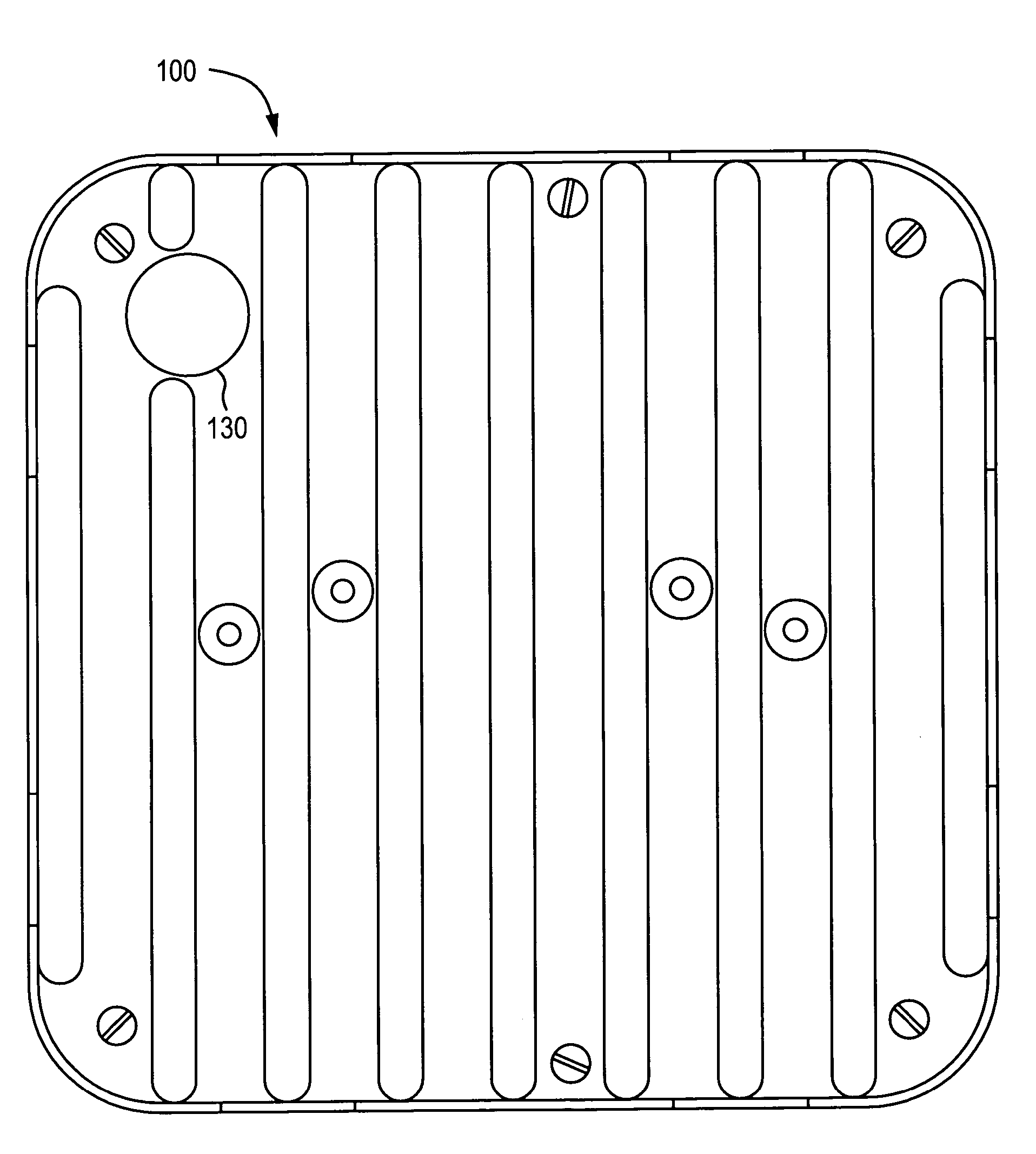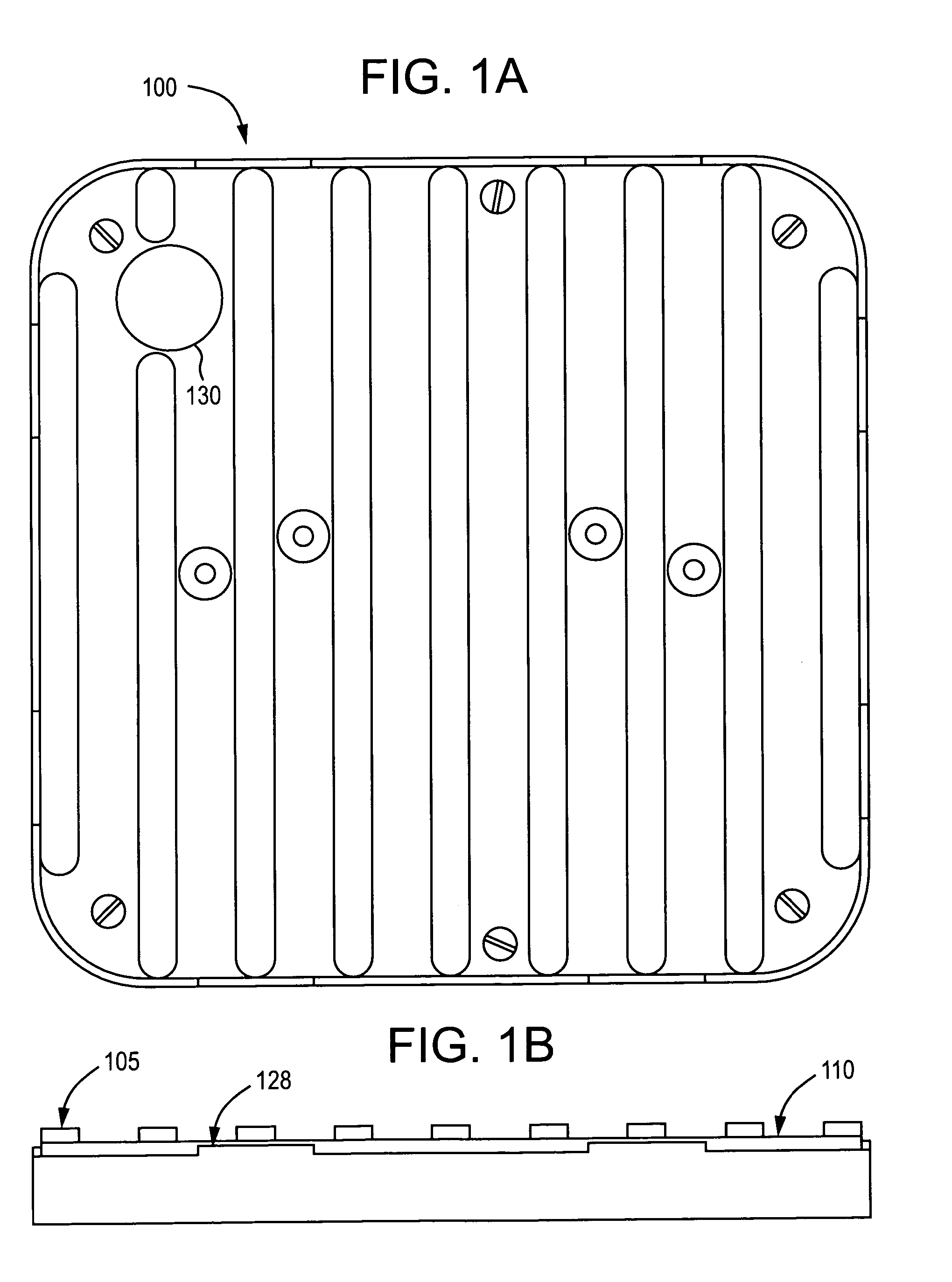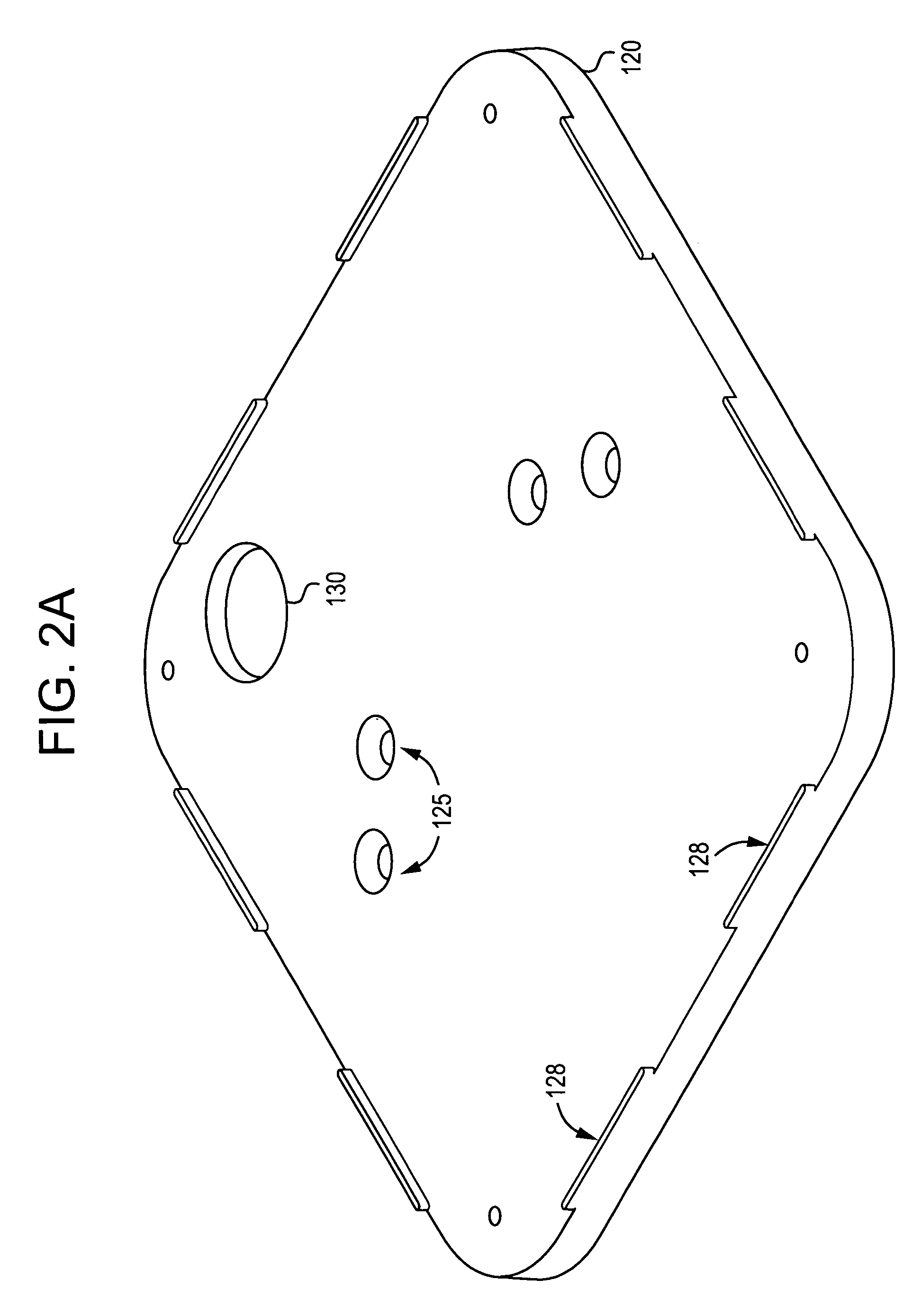Boat pad and boat pad assembly
a technology for boats and pads, applied in the field of boats, can solve the problems of limited life expectancy of pads, wood pads that contact the boat bottoms typically scratch and/or otherwise damage these boat bottoms, and the painted wood surface typically does not provide sufficient protection for the boat bottoms
- Summary
- Abstract
- Description
- Claims
- Application Information
AI Technical Summary
Benefits of technology
Problems solved by technology
Method used
Image
Examples
Embodiment Construction
[0022]FIG. 1A through 2C illustrate a boat pad and boat pad assembly for use with a boat stand and / or boat trailer in accordance with the example embodiments; these figures should be frequently referred to for the following discussion.
[0023] Referring to FIG. 2B, there shown is a boat pad 101 which may be configured in any desired size so as to fit on a suitable backing plate member (which forms an upper portion of a typical boat stand, for example). In the example of FIG. 2B, boat pad 101 includes a generally flat planar member, and may include a plurality of raised features or ribs 105 thereon. Ribs 105 may be arranged in parallel in adjacent spaced relation on a surface of the planar member so as extend longitudinally along the pad facing surface, as shown. This arrangement may define a plurality of recesses or channels 110 there between, as shown best in FIG. 1B.
[0024] Pad 101 may be ultraviolet resistant and chemical resistant and composed of an elastomeric, rubber or like ma...
PUM
 Login to View More
Login to View More Abstract
Description
Claims
Application Information
 Login to View More
Login to View More - R&D
- Intellectual Property
- Life Sciences
- Materials
- Tech Scout
- Unparalleled Data Quality
- Higher Quality Content
- 60% Fewer Hallucinations
Browse by: Latest US Patents, China's latest patents, Technical Efficacy Thesaurus, Application Domain, Technology Topic, Popular Technical Reports.
© 2025 PatSnap. All rights reserved.Legal|Privacy policy|Modern Slavery Act Transparency Statement|Sitemap|About US| Contact US: help@patsnap.com



